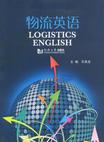物流英语
出版时间:2009-1 出版社:同济大学出版社 作者:乐美龙 编 页数:176
前言
自20世纪90年代以来,现代物流业发展迅速。因为它顺应了经济全球化和生产信息化的大趋势。谋求资源在全球范围内的优化配置、企业专注于其核心业务的改革和由生产信息化带来的对物流的更高要求,是现代物流发展的动因所在。对于有志于从事物流业的读者,了解物流业的最新进展十分重要。为此,我们组织了专门的队伍来编写本教材。在本书的编写队伍中,有长期从事英语教学的老师,有曾在国际领先的跨国物流企业工作的专业人士,也有在境外从事全球物流研究的学者。 本教材是一本英语教材,但编著者从来没有把它仅仅作为专业英语教材,而是按专业导论书的要求来组织和编写的。在选材和编写的过程中,编者始终以读者的眼光审视内容。通过阅读,读者能得到什么知识?对将来阅读物流原著帮助有多大? 诚然,要在一本教材中将一个学科的内容全部囊括进去是不可能的。本书主要定位于实用操作级。有关其他方面的内容,有兴趣的读者可以参阅作者的《供应链与物流英语教程》、《现代物流英语》(第二版)。
内容概要
《物流英语》是物流工程、物流管理专业的专业英语教材,选材内容涵盖海陆空铁运输、仓储与库存管理、货代与物流业务、国际贸易与电子商务、班轮业务、集装箱运输业务、物流与供应链管理等方面。内容精简、专业、全面、实用,深度恰当。《物流英语》适用于物流工程与管理专业本科生、高职生和其他相关专业作教材,也可供物流部门工程技术人员参考。
作者简介
乐美龙,博士,上海交通大学教授、博士生导师,中美物流研究院副院长,中国交通运输协会常务理事,美国供应链与物流专业协会(CSCMP)会员,是我国交通运输与物流工程领域的专家。
先后参与了国内两项重大港航建设项目——洋山深水港工程、广州南沙港工程的规划工作以及上海世博会物流(非贸)运营手册的起草工作,主持了宁波化工区物流配套、江苏洋口液化品物流园区等十几项大型物流规划与管理项目。
2007年,应邀赴美国乔治亚理工大学工业与系统工程学院,担任供应链与物流研究员。
书籍目录
Lesson 1 What is Logistics 1.1 Basic Concepts 1.2 Five Major AreasLesson 2 Maritime Transportation 2.1 The International Transport System 2.2 The Nature of Transport Demand 2.3 Introduction of Bulk Cargo and General CargoLesson 3 EC,EB and ED 3.1 What iS Electronic Commerce 3.2 What iS E-business 3.3 Difference between E-commerce and E-business 3.4 What iS EDILesson 4 Truck Transportation 4.1 General Service Characteristics 4.2 Equipment 4.3 Types of VehiclesLesson 5 InternationaI Trade 5.1 Merchandise Exports and Imports 5.2 Service Exports and Imports 5.3 Licensing 5.4 Trading Companies 5.5 Joint Ventures 5.6 Investment 5.7 Visible and Invisible TradeLesson 6 Air Transportation 6.1 Elements of Air Transport 6.2 Characteristics of Air Transport 6.3 Air Cargo Containers 6.4 Documents of CarriageLesson 7 Rai l Transportation 7.1 Commodities Hauled on the Rail 7.2 Feature of Rail Transport 7.3 Innovations in Rail TransportLesson 8 Warehousing Operations 8.1 What’S Warehousing 8.2 Public,Private and Contract Warehousing 8.3 OperationsLesson 9 The Role of Freight Forwarders 9.1 IntrOductlOn 9.2 What a Freight Forwarder Can Do for You 9.3 Freight Forwarders and Customs Agents and Brokers 9.4 Arrange Your Own Transport or Use a Freight Transporter 9.5 Finding and Choosing a Freight Forwarder 9.6 The Costs of Using a Freight Forwarder 9.7 Freight Trade AssociationsLesson 10 Third Party Logistics 10.1 Overview 10.2 Outsouring 10.3 Supply Chain Essentials and Nonessentials 10.4 Going beyond the 3PLModel 10.5 Advantages & Disadvantages of 3PLLesson 11 E-logistics 11.1 Introduction 11.2 Forward E-logistics 11.3 Reverse E-logisticsLesson 12 Operations in Container Terminals 12.1 Introduction 12.2 Containers,Storage Blocks,and Yard Cranes 12.3 Quay Cranes 12.4 The Yard Operations 12.5 Key Performance Measures of a Container TerminalLesson 13 Operations in Shipping Liners 13.1 Two Basic Shipping Services 13.2 General Procedures of Ocean Transport by Liners 13.3 Shipping and Forwarding Agents 13.4 Freight Rates 13.5 Bill of LadingLesson 14 Inventory Management 14.1 Why Keep Inventory 14.2 Controlling Inventory 14.3 Balancing Inventory and CostsLesson 15 Supply Chain Performance Assessment 15.1 Supply Chain’S Performance Categories 15.2 Customer Service Metrics 15.3 Internal Efficiency Metrics 15.4 Demand Flexibility Metrics 15.5 Product Development MetricsLesson 16 What Is SC and SCM 16.1 What iS SC 16.2 Some Related Concepts 16.3 What is SCMLesson 17 Supply Chain Development Strategy 17.1 ntroduction 17.2 Developing a Supply Chain Strategy 17.3 Executing Supply Chain Strategy 17.4 Avoiding Potential Pitfalls 17.5 Conclusion参考文献
图书封面
评论、评分、阅读与下载
用户评论 (总计10条)
- 东西很喜欢,物流服务一般
- 全英文,内容齐全。
英文专业性较强,适合提高英语水平使用。 - 书拿到了,还不错,虽有点小小的破损,但不影响整体。
- 看了一下,全英文,我的水平有待提高
- 很好啦!哈哈
- 对于物流所涉及的一些方面都有做了基本的概述,是入门型的书
- 学英语可以用
- 如题,里面内容还没细看,正在学习中
- 买回来很久了,还没看啊
- 收到货很及时,书还没来的及看
